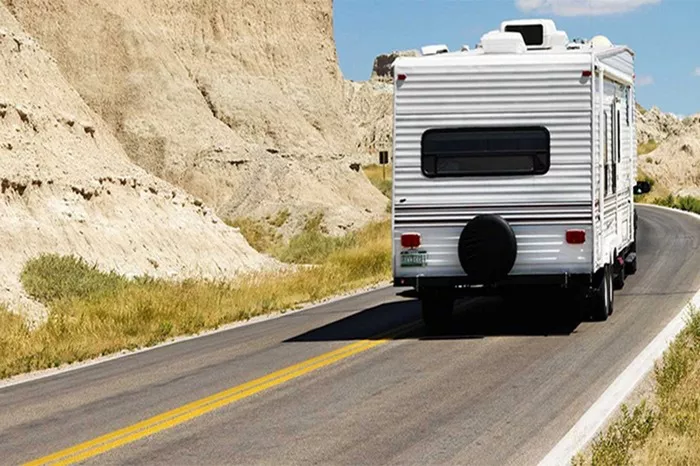Recreational vehicles (RVs) are a gateway to freedom on the open road, offering the comforts of home wherever you may roam. However, like any vehicle or property, RVs are susceptible to damage, particularly to their roofs, which are exposed to the elements year-round. Understanding whether your RV insurance covers roof damage is crucial to protect your investment and ensure peace of mind during your travels.
This article will explore the intricacies of RV insurance, focusing on roof damage coverage. We will discuss what types of roof damage are typically covered, the factors that influence coverage, how to file a claim, and practical tips for maintaining your RV’s roof to prevent future issues.
Understanding RV Insurance: An Overview
RV insurance is a specialized type of coverage designed to protect your motorhome, travel trailer, camper, or other recreational vehicles. It combines elements of auto insurance, homeowners insurance, and sometimes even renters insurance, depending on how you use your RV.
There are several key components of RV insurance, each providing different types of coverage:
Liability Coverage: This covers you in case you are at fault in an accident that causes bodily injury or property damage to others. It is required by law in most states if you drive your RV on public roads.
Collision Coverage: This pays for repairs or replacement of your RV if it is damaged in a collision, regardless of who is at fault.
Comprehensive Coverage: This covers non-collision-related damages to your RV, such as those caused by theft, vandalism, fire, or natural disasters.
Personal Injury Protection (PIP): This covers medical expenses for you and your passengers if injured in an accident.
Uninsured/Underinsured Motorist Coverage: This protects you if you are involved in an accident with a driver who lacks adequate insurance.
Contents Coverage: This protects personal belongings inside your RV, similar to homeowners or renters insurance.
Full-Time RV Insurance: For those who live in their RVs full-time, this type of policy provides more comprehensive coverage, akin to homeowners insurance.
Understanding these different types of coverage is essential for grasping how roof damage might be addressed under your RV insurance policy.
Types of Roof Damage Typically Covered by RV Insurance
RV roofs can sustain damage from various sources, ranging from severe weather to accidental impacts. Whether or not your RV insurance covers roof damage largely depends on the cause of the damage and the specifics of your policy. Here are some common scenarios:
Storm Damage
Hail: Hailstorms can cause significant dents, punctures, and other damage to your RV’s roof. Most comprehensive RV insurance policies cover hail damage, provided you can prove that the damage occurred due to the storm.
Wind: High winds can tear off parts of your RV’s roof or cause debris to strike and damage it. Wind damage is usually covered under comprehensive insurance.
Fallen Trees or Branches: If a tree or large branch falls on your RV during a storm, the resulting roof damage would generally be covered by your comprehensive coverage.
Water Damage
Leaks from Roof Seals: Over time, the seals on your RV’s roof can deteriorate, leading to water leaks. Coverage for this type of damage can be tricky. While some policies might cover water damage if it is sudden and accidental, others may not cover damage due to wear and tear or lack of maintenance.
Snow and Ice: Heavy snow or ice buildup on your RV’s roof can cause it to cave in or suffer structural damage. If this happens due to a sudden, unexpected event, it may be covered by comprehensive insurance. However, if the damage is due to long-term neglect, it may not be covered.
Collision Damage
Low Clearances: Accidental collisions with low-hanging branches, bridges, or overpasses can cause severe roof damage. If you have collision coverage, it should cover repairs or replacement.
Accidents: If your RV is involved in an accident and the roof is damaged as a result, collision coverage would typically pay for the repairs.
Vandalism or Theft
If your RV’s roof is damaged due to vandalism or theft, comprehensive coverage would usually apply.
Fire
Roof damage resulting from a fire, whether it’s due to an internal issue like faulty wiring or an external cause like a wildfire, is generally covered under comprehensive insurance.
See Also: Does Insurance Cover RV Water Damage?
What May Not Be Covered by RV Insurance
While RV insurance can provide extensive protection, there are some situations where roof damage might not be covered:
Wear and Tear
Aging Materials: Over time, the materials used in your RV’s roof can wear out. Insurance companies often view this as a maintenance issue, meaning damage from wear and tear is typically not covered.
Neglect: If the roof damage is a result of poor maintenance or neglect, such as failing to reseal seams or ignoring small leaks, your claim might be denied. Regular maintenance is key to keeping your roof in good condition and ensuring coverage.
Manufacturer Defects
If your RV’s roof has a defect from the manufacturer that leads to damage, it might not be covered by your insurance policy. Instead, you may need to pursue a warranty claim with the manufacturer.
Certain Types of Water Damage
Gradual Water Damage: Some insurance policies exclude coverage for water damage that occurs gradually, such as leaks that develop over time due to deteriorating seals. It’s essential to understand your policy’s stance on water damage, as this can vary significantly between insurers.
Roof Material Limitations
Certain policies may have exclusions based on the type of material your RV’s roof is made of. For instance, roofs made of rubber or fiberglass may have different coverage stipulations.
Factors That Influence Roof Damage Coverage
Several factors can influence whether your RV insurance policy will cover roof damage:
Type of RV Insurance Policy
The type of RV insurance policy you have will significantly impact coverage. For example, a comprehensive policy is more likely to cover a wide range of roof damage scenarios than a basic liability policy.
Deductibles and Policy Limits
Your deductible is the amount you must pay out of pocket before your insurance kicks in. Higher deductibles usually mean lower premiums, but they also mean you’ll pay more if you need to file a claim. Additionally, your policy will have limits on how much it will pay out for repairs, so be aware of these limits when evaluating your coverage.
Condition of the Roof
Insurers may consider the age and condition of your RV’s roof when determining coverage. If your roof is old or in poor condition due to lack of maintenance, this could affect your claim.
Proof of Damage
When filing a claim, you will need to provide evidence that the damage was sudden, accidental, and covered under your policy. Photos, repair estimates, and documentation of the incident that caused the damage can all support your claim.
Insurance Provider
Different insurance companies have different policies, coverage options, and exclusions. It’s essential to thoroughly read your policy and ask your insurer specific questions about roof damage coverage to ensure you have the protection you need.
Conclusion
In summary, RV insurance can cover roof damage, but coverage depends on the cause of the damage, the type of policy you have, and your maintenance practices. Comprehensive and collision coverage are the most likely to cover roof damage caused by storms, accidents, or vandalism, while damage due to wear and tear, neglect, or manufacturer defects may not be covered.
Understanding the specifics of your RV insurance policy is crucial to ensuring you have the coverage you need. Regular maintenance and proactive care of your RV’s roof can prevent damage and increase the likelihood that your insurance will cover any unexpected issues.
When purchasing or renewing your RV insurance policy, take the time to ask detailed questions about roof damage coverage and review the policy terms carefully. With the right coverage and proper care, you can enjoy your RV adventures with confidence, knowing that you are protected against the unexpected.






















